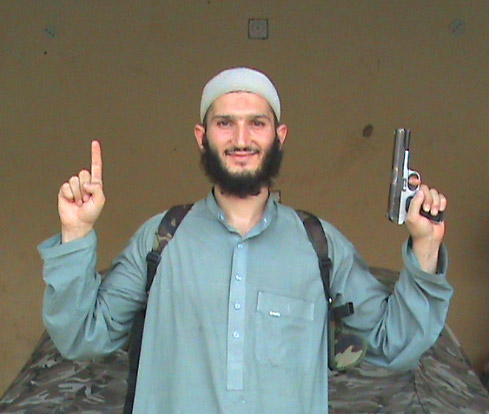When it emerged in mid-March that the perpetrator of a deadly suicide attack on American troops in Afghanistan had come from Germany, the American media showed remarkably little interest. On March 3, 28-year-old Cüneyt Ciftci from Ansbach in Bavaria drove a pick-up loaded with several tons of explosives into a guard post in Khost province in southeastern Afghanistan and then detonated his payload while still inside the truck. According to U.S. Army and Afghan sources, two American soldiers and two Afghans were killed in the attack and another seven persons, including four soldiers, were wounded. The Islamic Jihad Union (IJU), the Taliban-affiliated Jihadist group that took responsibility for the attack, claimed a more massive death toll: some 60 dead in both the explosion itself and a follow-on attack by Taliban forces. In a Turkish-language statement posted in the internet, the IJU also identified the bomber: "This operation was successfully carried out by the brave Cüneyt Ciftci from Germany, who has traded in his life of luxury for paradise" (source: Focus). The text was accompanied by photos of a smiling Ciftci brandishing a pistol and sitting behind the wheel of vehicle. And what did the American public learn about all this from American news organizations? A Factiva database search turns up a single sparse 280 word AP dispatch tentatively noting that German authorities were "checking" whether the German-born Ciftci might possibly be "linked" to the bombing. Instead, Americans were left to glean whatever more substantial information they could from the English-language website of the German weekly Der Spiegel. While Der Spiegel's March 15 article likewise studiously avoided treating Ciftci's responsibility for the attack as given, it nonetheless conceded that it was "likely": thus prompting the authors to pronounce Ciftci -- in all probability -- "the first suicide bomber from Germany." In light of the fact that Mohammad Atta and two of the three other pilots in the 9/11 attacks also lived in Germany, and indeed plotted the attacks there, the formula gives serious cause to pause. Der Spiegel dramatically described Ciftci's presumptive involvement as "Berlin's Worst Nightmare": as if the Hamburg Cell's leading role in the 9/11 attacks had not already been an even worse one or as if "Berlin" was suffering from collective amnesia and no longer remembered -- or wanted to remember -- the major German connection to 9/11. A few days later a "martyrdom video" of Cüneyt Ciftci emerged. The video depicts Ciftci's preparations for the attack in meticulous detail and shows him pleasantly waving to the camera before climbing into the explosives-laden pickup. It also includes chilling footage of the attack itself: shot from multiple angles and complete with the cameramen's ecstatic cries of "Allahu Akbar" at the moment of detonation. (The video can be viewed here, where Ciftci is identified by his nom de guerre Sa'ad Abu Furqan.)
Germany’s Taliban Trail: From Murat Kurnaz to Cüneyt Ciftci

